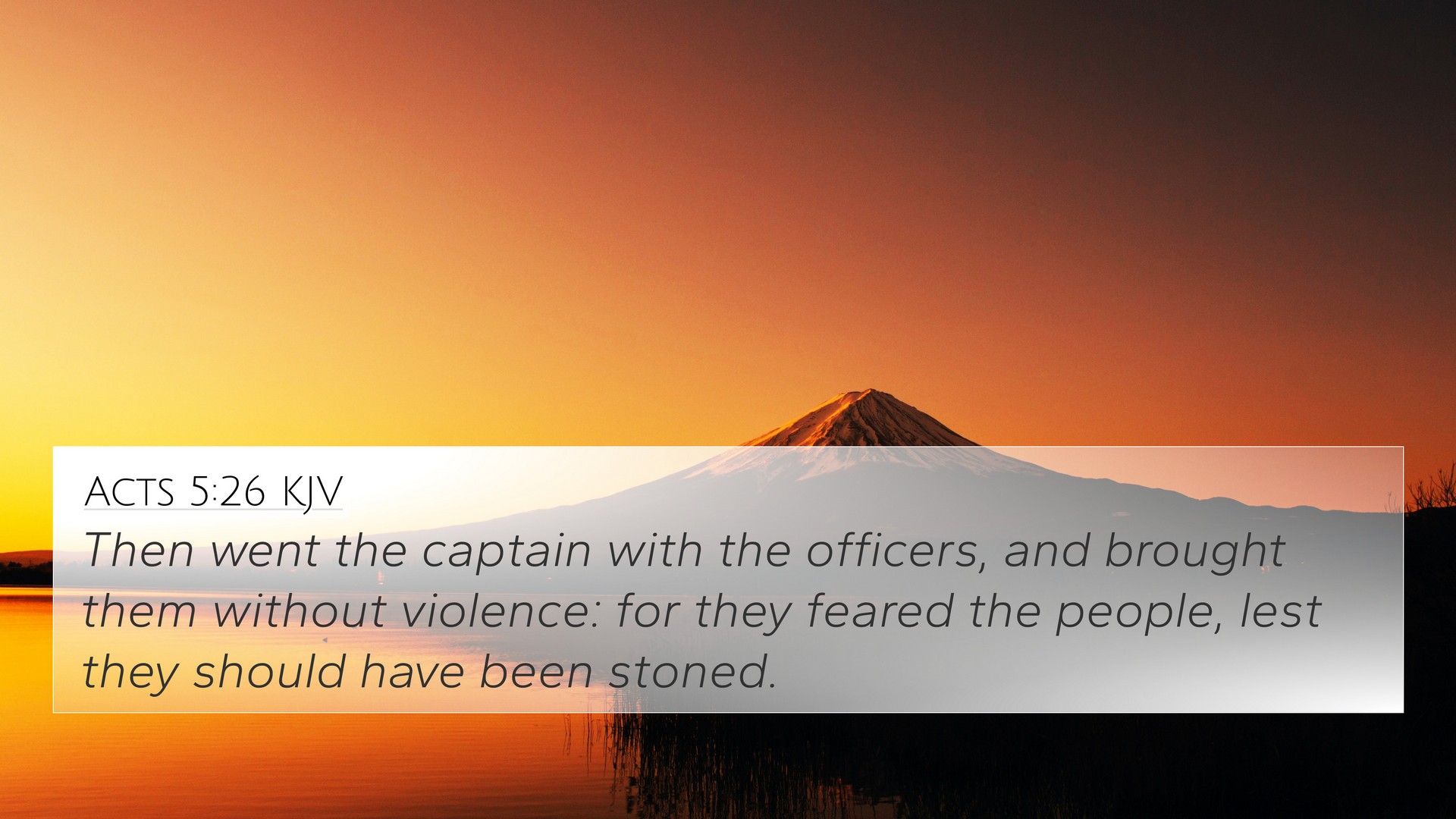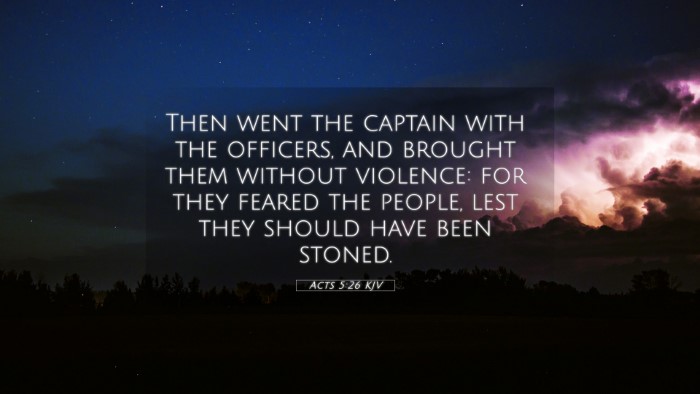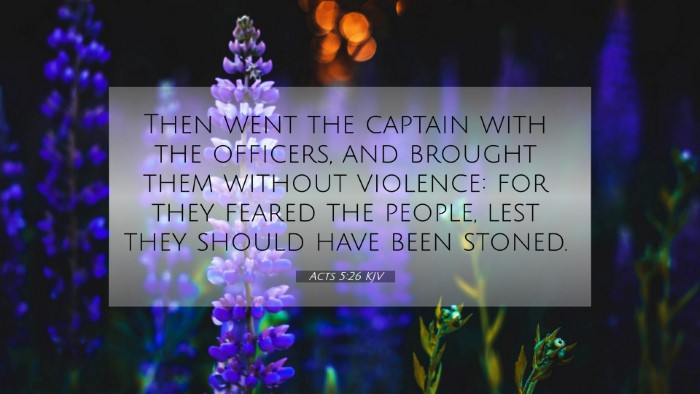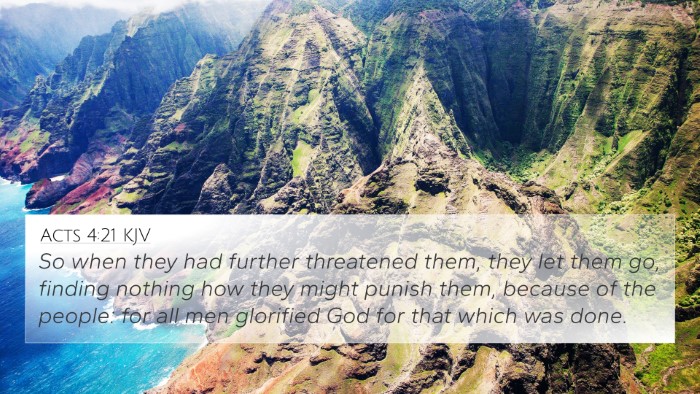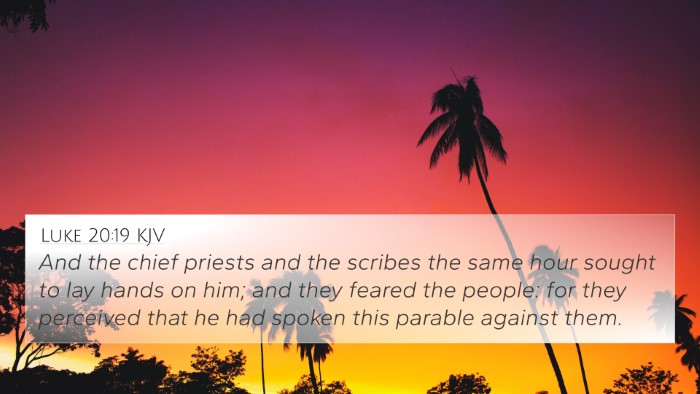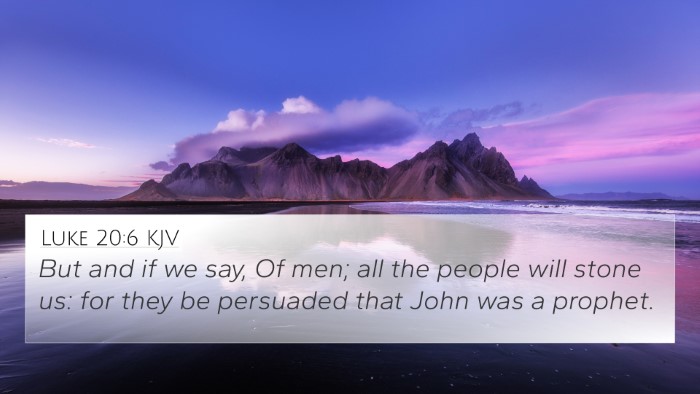Understanding Acts 5:26
Acts 5:26 states: "Then went the captain with the officers, and brought them without violence: for they feared the people, lest they should have been stoned." This verse presents a moment of tension and divine intervention amidst the apostles' ministry. Below is a comprehensive exploration of its meaning and connections to other biblical texts.
Verse Analysis
This verse underscores several key themes:
- Authority and Fear: The captain and officers exhibit a fear of the people, indicating their awareness of public opinion and the unrest that could ensue.
- Divine Protection: The manner in which the apostles are brought signifies God's protective hand as they carry out their mission.
- Violence and Peace: The absence of violence in the arrest reflects the ongoing struggle between the new faith and the traditional religious leaders.
Commentary Insights
In synthesizing insights from several public domain commentaries:
- Matthew Henry: Henry emphasizes the conflict between the apostles' mission and the authorities, noting that the fear of the people restricted the officers from using force.
- Albert Barnes: Barnes points out the strategic decision of the captain not to act violently, highlighting the respect for the people’s sentiments and the potential for backlash against the authorities.
- Adam Clarke: Clarke interprets the scene as a demonstration of how divine works can lead to a public favor that protects the apostles. The officers' reluctance to use violence shows the broader implications of supporting the nascent Christian movement.
Bible Cross References
This verse can be cross-referenced with the following passages for deeper understanding:
- Acts 4:21 - The response of the authorities when the apostles were first ordered to cease their preaching.
- Matthew 27:24 - Pilate's fear of the public related to his decision regarding Jesus.
- Acts 5:29 - The apostles' response to the authorities’ commands, emphasizing obedience to God.
- John 7:13 - Fear of the Jewish leaders led to a reluctance among the people to speak openly about Jesus.
- Mark 11:32 - A similar issue of public opinion impacting the religious leaders' decisions.
- Luke 12:4-5 - Jesus’ teaching about fearing those who can kill the body but cannot kill the soul.
- Acts 12:1-3 - Herod’s actions regarding the Apostles reveal similar public sentiment and fear of repercussions.
Thematic Connections
Acts 5:26 serves as a critical junction that showcases themes of divine protection, authoritarian struggle, and the impact of public consciousness on religious authority. The connections between the events in Acts and the Gospels illustrate broader theological truths such as:
- God's Sovereignty: Despite human opposition, divine plans prevail.
- Community Dynamics: The role of public sentiment in the actions of leaders, both civil and religious.
Conclusion
Acts 5:26 encapsulates a significant moment in the early Church that invites reflection on the relationship between divine authority and human governance. Through a comparative analysis with related passages, we uncover the Bible's interwoven narrative that continuously echoes themes of faith, public perception, and the challenges faced by followers of Christ.
Further Study
For deeper insights into cross-referencing biblical texts and understanding verse connections, consider utilizing:
- Bible Concordances: Tools that help identify themes and connections across scripture.
- Resource Guides: Materials that provide comprehensive cross-reference studies.
- Study Methods: Approaches that facilitate deeper engagement with biblical themes and connections.
